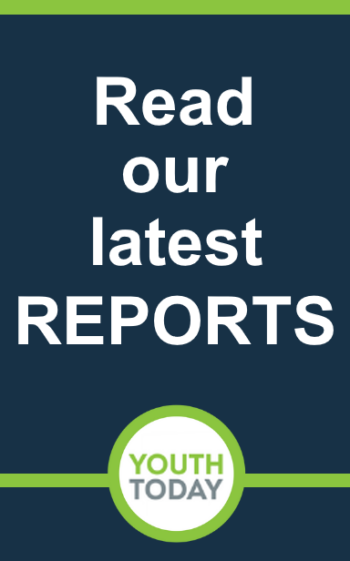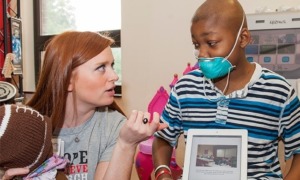The National Afterschool Matters Practitioner Fellowship is an intensive professional development opportunity in which seasoned practitioners from a range of Out-of-School Time (OST) youth serving organizations engage in a facilitated inquiry-based experience to enhance their own practice and improve program quality and youth experiences. Based at the National Institute on Out of School Time (NIOST) at Wellesley College, the program works in partnership with the National Writing Project (NWP) and local Writing Project sites. The NASM fellowship has established groups in New York, San Francisco, Philadelphia, Minneapolis, Seattle and Pittsburgh. NIOST and NWP work together to support practitioners over an extended period of time during which they meet regularly in a facilitated forum to identify effective practice, share important questions, read professional articles, engage in inquiry related to their practice, and hone their own skills towards the goal of program improvement.
Community Partners
In addition to the local Writing Project, each fellowship city has a Community Partner (CP). This is a key organization that can serve multiple purposes. The CP is often an intermediary, that is, an nonprofit agency that provides training and technical assistance to educators. The CP’s role can include helping conduct outreach and recruitment of fellows, convening and hosting fellowship sessions, engaging in fund-raising, publicity and sustainability efforts.
Fellowship Description
The NASM Practitioner Fellowship is informed by the theoretical and philosophical foundation of teacher-inquiry. Teacher inquiry is a thirty-year movement that profiles teacher knowledge and emphasizes the importance of teachers in improving practice. Teacher research engages teachers in identifying questions and problems in their own teaching, and then provides the structure for them to examine these problems systematically and reflectively in order to make and test “coherent instructional decisions” (Finley, et al., 2000). Professional development does not mean merely learning a few more classroom strategies, but rather becoming more professional on all levels (www.nwp.org).
The NASM Practitioner Fellowship views practitioners as the agents of reform through professional development. This effective professional development model provides frequent and ongoing opportunities for practitioners to reflect on practice, engage in inquiry projects based on their own questions and concerns, and write about their work. Practitioners who are well informed and effective in their practice can be successful teachers of other practitioners as well as partners in development and implementation of effective and quality practice. The Practitioner Fellowship engages practitioners in the OST field in a process of leadership development where they learn to reflect on, study, improve, and assess their work with a view toward improving its quality and impact.
Goals of project
The NASM Practitioner Fellowship addresses a critical need in the OST field:
Developing professional development strategies that support interventions to improve programs and increase understanding of the features of effective programs. The Practitioner Fellowship focuses on practitioner experience, placing practitioners and practice at the center of program improvement strategies.
The four major goals of the National Afterschool Matters Practitioner Fellowship program are to:
1. Support a community of practitioners to study effective practices and investigate the structures in which effective practice happens – at the program, activity, curriculum, and individual level.
2. Disseminate and share a variety of program improvement strategies. As end products practitioners might produce: briefing papers, events, curriculum, or identify points of action of effective practice. Participants typically make presentations for parents and at professional meetings, write articles for professional journals, hold conversations via electronic conferences, and contribute to local newsletters and newspapers.
3. Build a network of practitioners who are engaged with each other and passionate about the practices they hold in common.
4. Bring opportunities for in-service training, project development, and practice back to their programs.



















